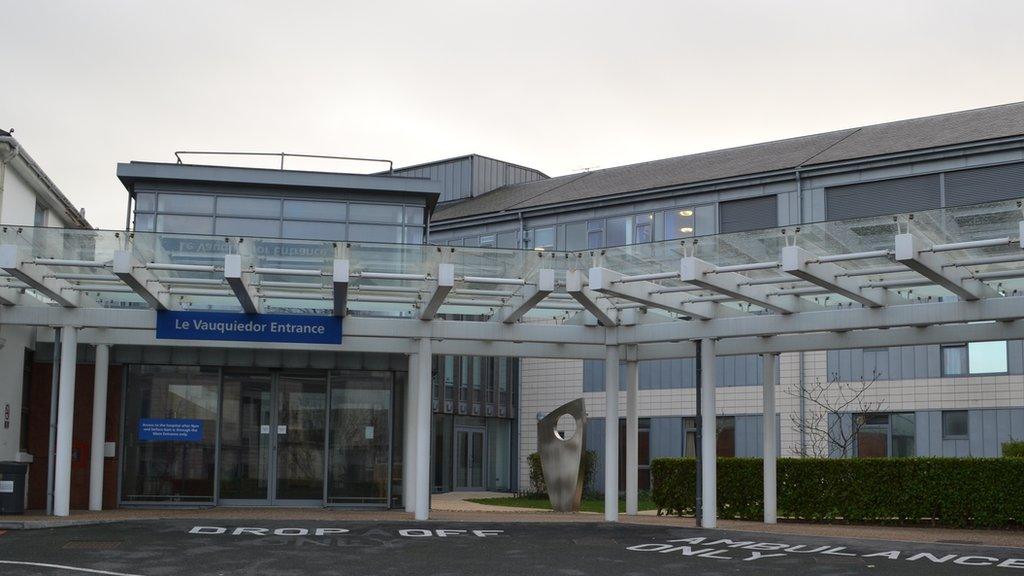Guernsey woman's life saved by pioneering treatment in emergency department
- Published
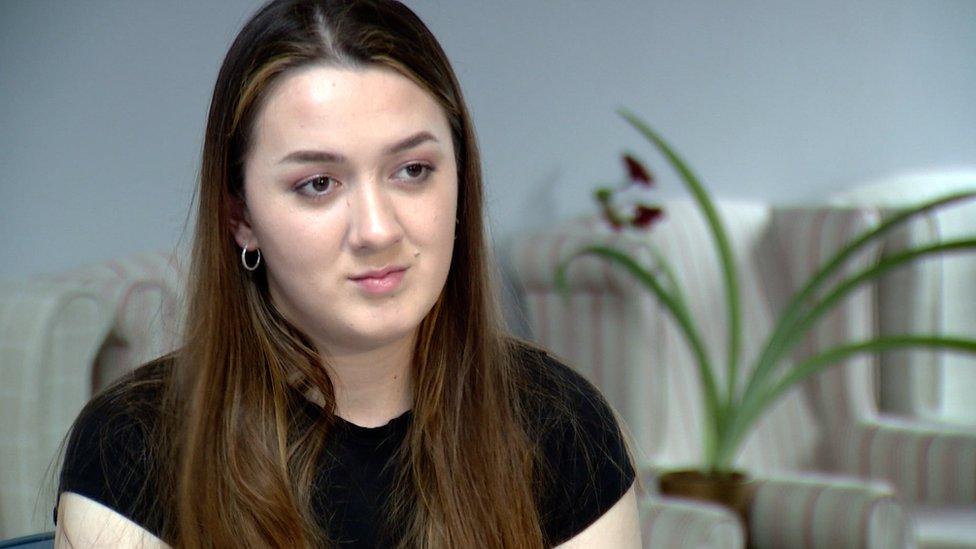
Sophie Lundon needed treatment for a collection of blood between the skull and the brain after a fall
Hospital staff in Guernsey saved the life of a woman using a "pioneering treatment", a report has revealed.
Sophie Lundon was admitted Princess Elizabeth Hospital after a fall and needed treatment for a collection of blood between her skull and brain.
The procedure to drain the blood used an intraosseous needle (IO needle).
It was carried out in the island under the direction of a neurosurgeon at the Wessex Neurological Centre in Southampton.
If untreated, blood collecting between the skull and the brain - an extradural haematoma - can result in death, as outlined in the Trauma Case Report.
Given the immediate risk to life and that it could take up to two hours for a medivac via air ambulance or coastguard helicopter, it was decided to use a special needle to remove as much blood as possible before transferring Ms Lundon, who was 18 at the time, to hospital in Southampton.
'Immediate improvement'
Aruni Sen, lead consultant at Princess Elizabeth Hospital's emergency department, was asked to carry out the procedure due to his experience using an IO needle for emergency resuscitation.
Mr Sen said: "We believe that this is the first time that such a procedure has been used in a remote hospital in the UK in consultation with a neurosurgical centre in another location.
"We saw immediate improvement once an initial amount of blood was removed which meant we could safely transfer Sophie to the UK for specialist care."
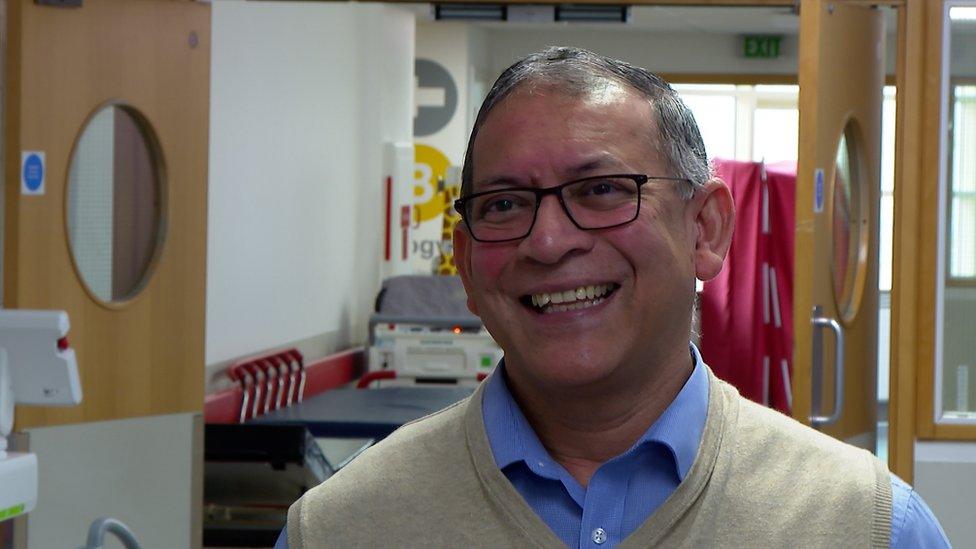
Aruni Sen performed the procedure with the help of a neurosurgeon based in Southampton
Mr Sen said without the treatment the outcome "would have likely been death or severe brain injury".
Ms Lundon, who is now 20, said she was "delighted" the medical paper had been published.
"Their skills and expertise undoubtedly saved my life," she said.
"As with any traumatic brain injury, I may look fit and healthy to anyone who sees me, but I am working hard with my family, friends, and the support of Headway, to live with the hidden impact of the injury and build a slightly different life for myself after the accident."
The medical paper has been written by Aruni Sen, Nemer Kharroubi from HSC, Anthea Pinder from the Medical Specialist Group, and Jonathan Hempenstall from the Wessex Neurological Centre at Southampton General Hospital.

Follow BBC Guernsey on Twitter, external and Facebook, external. Send your story ideas to channel.islands@bbc.co.uk, external.
Related topics
- Published21 March 2023
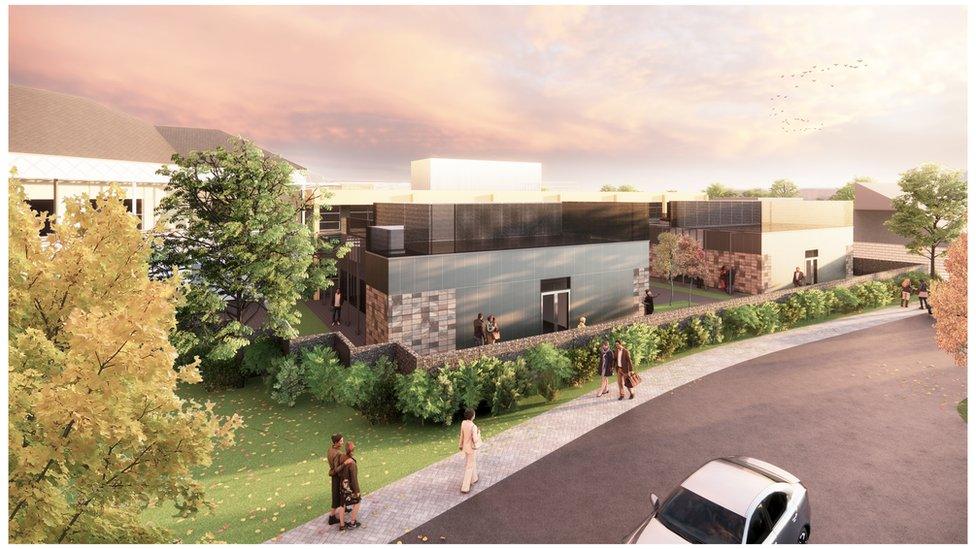
- Published23 February 2023
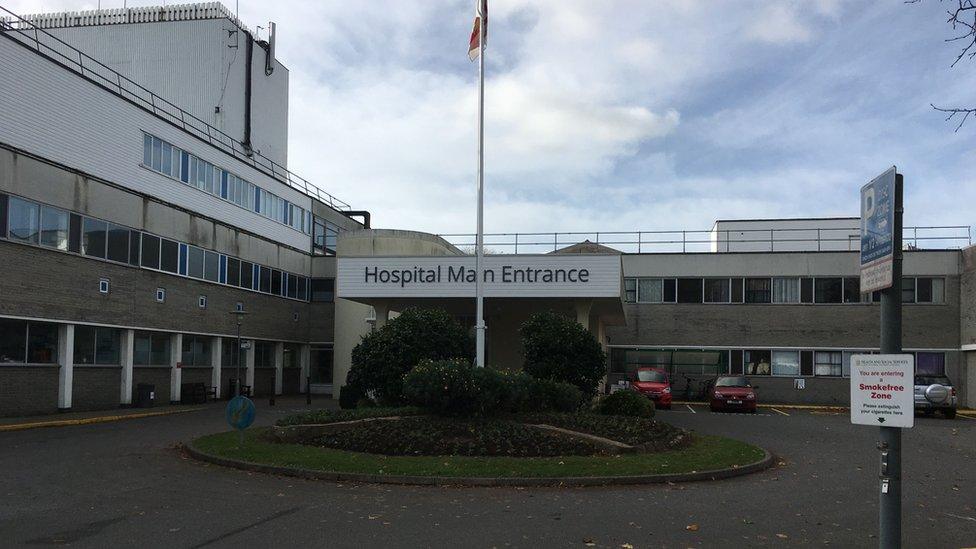
- Published2 December 2022
